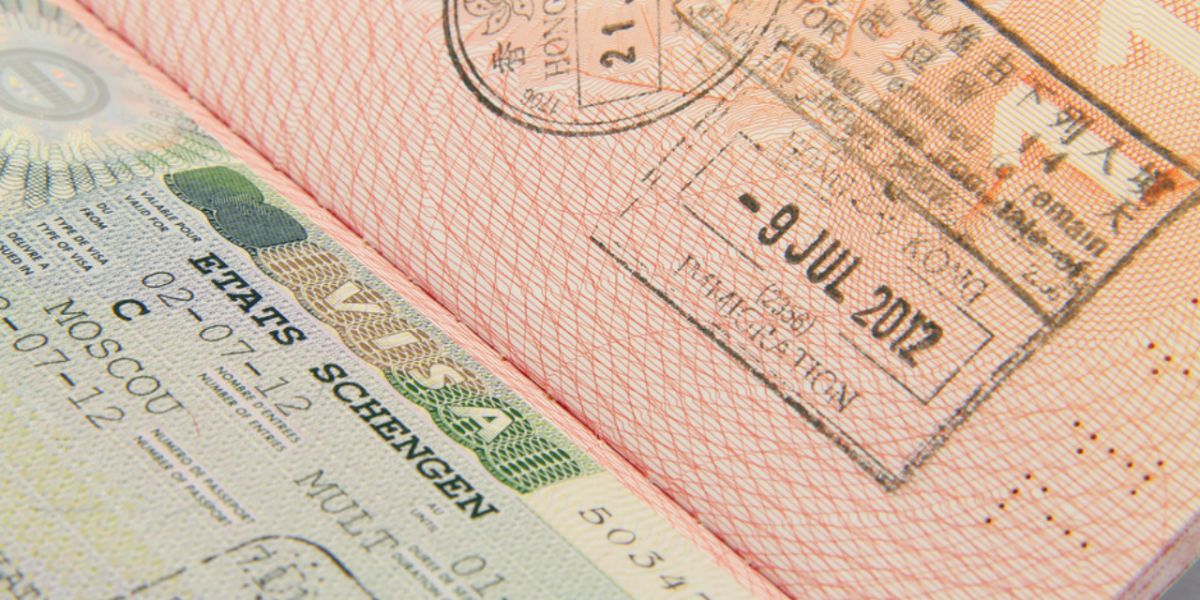
Nationals of the EU and EEA can travel to Germany as short-term visitors without restrictions, with a national identity card or a valid passport. Similarly, citizens of many non-EU countries (e.g., Guatemala, Japan, the UK, South Korea, Malaysia, Mexico, Singapore, and the UAE) are exempted from the visa requirement as long as they are not staying in Germany for more than 90 days in a six-month period, and are not engaged in employment during their stay in Germany. The list of visa-exempt countries for entering Germany is available on the Federal Foreign Office website, which is provided in the Useful Links section below.
As per the Federal Foreign Office's list, nationals of the countries that require a visa should contact the German embassy or consulate in their home country to complete a visa application for tourist purposes.
Attention:
All visa exemptions are valid for short-term entry, such as visiting friends and family, engaging in leisure activities, or attending conferences. If the entry to Germany is for engagement in gainful employment, different rules apply, which are thoroughly explained in Expat.com's article about Work visas for Germany.
Important:
To enter Germany without a visa, your passport must be biometric, and it must be valid for at least three months from the date of arrival. A biometric passport (e-passport) has an embedded microchip, which holds biometric information used to authenticate the identity of the passport holder. To confirm whether your passport is biometric, look for the biometric symbol (a circle between two lines) printed on the cover.
Useful link:
Visa requirements/exemptions for entry into Germany
Schengen visa for the Schengen Area
The Schengen Area is a zone within Europe consisting of 27 countries that have agreed to exempt their citizens and holders of valid visas and residence permits from border controls within this area. The Schengen Area is often confused with the European Union. However, it's worth clarifying that the EU is a political and economic union of 27 member states, whereas the Schengen Area serves the free movement of people between the 27 countries. Also, it's good to know that there are some countries in Europe that are not participating in the Schengen Area agreement, namely Croatia, Cyprus, Ireland, and Monaco.
So, suppose you are a third-country national, and you wish to enter Germany on a short-term basis. You will probably combine your trip to Germany with visits to other countries in Europe. In that case, you should consider applying for a Schengen visa. The Schengen visa is issued by a member state of the Schengen agreement and is valid for travels within the Schengen Area (27 countries). The visa allows for a short-term stay in the Schengen Area, meaning that you can stay in the Schengen Area for a maximum of 90 days per six months. For example, suppose you have a residence permit issued by Germany, your country of residence. Since Germany is a member-state of the Schengen agreement, you have the right to visit other Schengen member-states for a short period by presenting your German residence permit. Or, if you want to arrive in Germany from a third country (e.g., Egypt), you can apply for a Schengen visa, which will allow you to travel between the Schengen countries for a maximum of 90 days within 6 months. In other words, a third-country national who has a valid passport and a valid residence permit issued by a Schengen member-state is entitled to enter the territory of another Schengen member-state for a short stay without a visa.
Important:
The Schengen visa is issued only to applicants who can prove that they genuinely intend to stay in the Schengen Area for a limited amount of time (e.g., tourism, business, or family visit) and possess enough resources to support themselves for the time for which they plan to stay in the area (e.g., bank statement), and hold travel insurance (e.g., health insurance certificate covering the days of travel). If you are unable to provide such information, a sponsor living in Germany can vouch for you. This statement of support must be filed at the city hall of your sponsor's city of residence in Germany.
Attention:
If you intend to stay longer than 3 months in Germany, you need a long-term visa or residence permit. Consult with the German embassy or consulate in your home country or the migration authorities in Germany if you are already in the country. If the entry to Germany is for engagement in gainful employment, different rules apply, which are thoroughly explained in Expat.com's article about Work visas for Germany.
Useful link:
Federal Office for Migration and Refugees website.
Residence or a long-stay visa in Germany
For entry into Germany for more than 90 days, a long-stay visa is required. In the case of EU–EEA citizens and citizens of Australia, Canada, Israel, Japan, New Zealand, South Korea, and the United States, a residence permit is required, which can be applied for after entering Germany without a visa. The long-stay visa is usually for third-country nationals (non-EU citizens and nationals of countries other than the seven countries mentioned above) who wish to enter Germany for work, study, research, or family reunion with a German or foreign spouse. The process of applying for a long-stay visa for Germany depends on the applicant's country of origin. In general, it may take between 1 to 3 months to receive an answer regarding your application.
Some of the documents a long-stay visa applicant may have to provide during the application are a copy of a passport that is valid for at least 3 months beyond the period of the stay in Germany, a written statement explaining the reason for travel to Germany, bank statements showing that the applicant can support themselves financially while in Germany, a return ticket, and possibly a criminal record check from the country of origin or country of habitual residence.
The German long-stay visas, which are also covered in Expat.com's article about Work visas for Germany, are:
The job seeker visa. It allows searching for a job in Germany for 6 months. During this period, if you find a job, you can apply for a work visa, and if granted the visa, you can start working in Germany. The main requirements for the job seeker visa are:
- a higher education certificate;
- at least five years of professional experience;
- sufficient funds for the six months of job hunting;
- medical insurance.
The regular work visa for Germany can be for any job, but primarily open for employment in the healthcare sector. It does not have specific salary requirements but is much slower and more complex than the other visa types. For this visa too, the Employment Agency needs to check the salary options and whether a German citizen can fill the position.
As of June 2024, they're also introducing the Opportunity Card in Germany, which allows successful applicants to enter the country without the lengthy recognition process of a visa. Applicants are allowed to work part-time for up to a year as long as they have basic German and English knowledge, sufficient funds, and have six points on the point system. You can find out more about it on the Opportunity Card website.
The family reunion visa requires documents such as proof of accommodation, proof of relationship, a copy of the visa (or passport in case of German or European citizenship) of the partner, proof of at least a basic knowledge of German (A1) by a renowned German institute, such as Goethe Institut. Marrying a partner who has a residence in Germany allows the family (or the spouse) to move to Germany.
A student visa for Germany needs to be applied at least 6 to 7 months beforehand. This visa has different requirements, including proof of financial means, an acceptance letter from the university (or sometimes a letter of acceptance of the application issued by the university), and documents of previous education (all legally translated and notarized). This procedure needs to be done on time so as not to coincide with the start of the university semester.
The EU Blue Card
The EU Blue Card is a residence permit for work purposes for non-EU and EEA citizens in an EU member state, including Germany. In other words, the EU Blue Card is a way to attract highly qualified professionals and experts from third countries to Germany's and other EU member states' labor markets.
Applicants for the EU Blue Card must be able to show proof of a university degree and a job offer, which entitles them to annual earnings of at least 45,300 euros (or 41,041.80 euros if there's a severe shortage of skills in the specific field). Often, the EU Blue Card leads to long-term stays in Germany and even permanent settlements in the country. The permanent residence permit, also known as the settlement permit, allows you to stay in Germany for as long as you want. However, to get this type of permit, you need to prove you have worked for at least 5 years in a job approved by the Federal Employment Agency (BA) and prove you know advanced-level German.
Attention:
Third-country nationals eligible for the EU Blue Card must still apply for a work visa to enter Germany. Once they arrive in Germany, they will have to visit the local Foreigners' Registration Office to begin the issuing process of the EU Blue Card.
Important:
EU Blue Card holders are eligible for a settlement permit after 33 months of residence or 21 months if they can prove they have good German language skills.
Useful links:
We do our best to provide accurate and up to date information. However, if you have noticed any inaccuracies in this article, please let us know in the comments section below.








